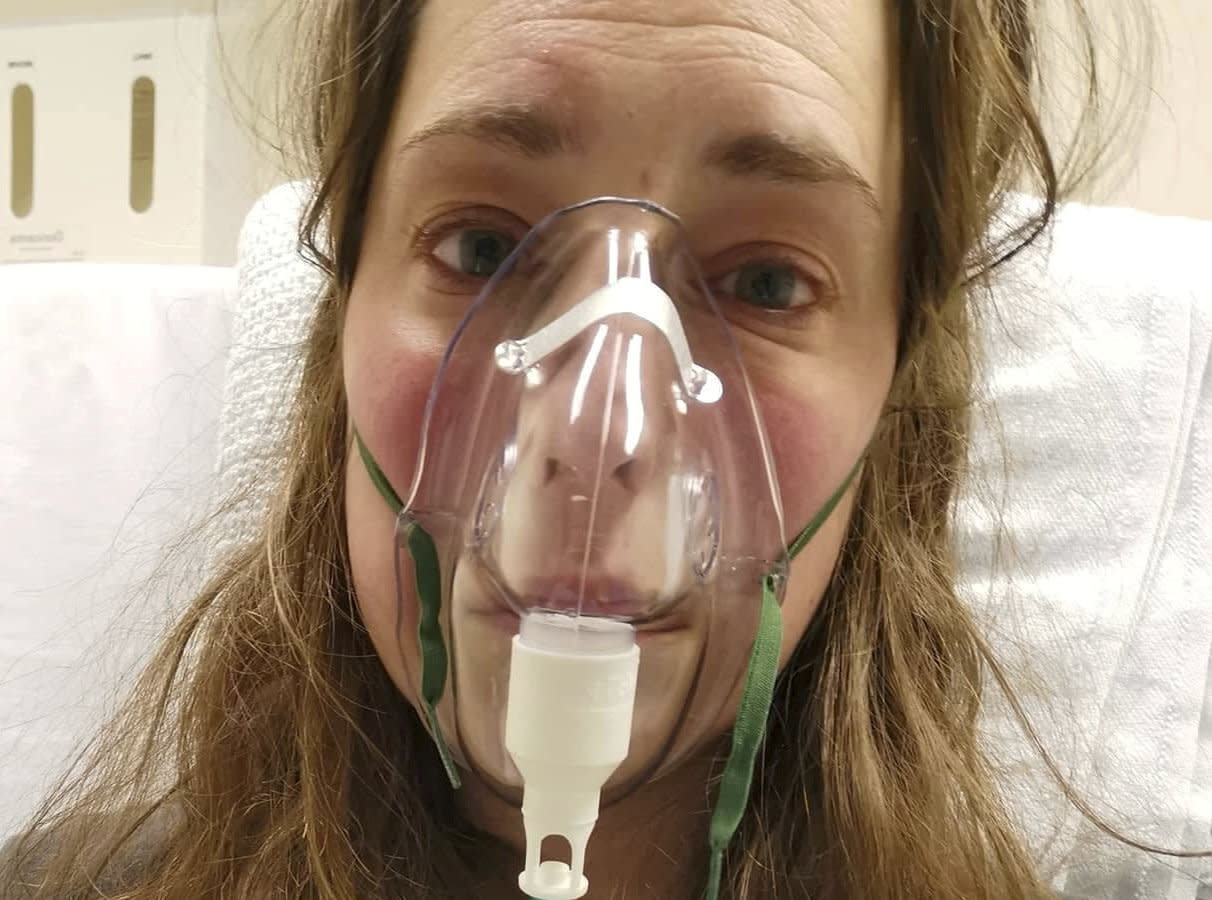Mum-of-two still can't walk or play with her children five months after recovering from coronavirus

A nurse with two children is still struggling from the impact of the coronavirus almost six months after being diagnosed with the virus.
Jess Marchbank, who was fit and healthy before her diagnosis found out she had COVID-19 after suffering from a sore throat at the start of the pandemic.
After spending three days in hospital, she was released in late March.
She now wants to warn people about the long-term effects of the virus, after still not being able to walk, work or play with her children after almost six months.

Speaking about her experience, Marchbank said: “I don't really feel like I'm living any more, physically I can't do anything because of the fatigue.
“I have chronic fatigue now, so if I do something simple like opening the blinds in the morning I have to sit down after doing that.
“I can't play with the kids properly, I can't work, I can't do anything without getting breathless.”
Read more: Doctor describes realities of working during a pandemic
Before she was diagnosed, she lived a healthy and fit life, a stark warning that the coronavirus can affect anybody.
“I was fit and healthy before. I was in the gym three times a week and could lift 90 kg dead weights, but now I can't even lift my two-year-old,” Marchbank explained.
“When I do try and do anything I get so many uncomfortable and painful things happen.
“Just walking up the stairs can cause my heart to jump up to 180 bpm then it drops to 70 which makes me throw up.”

Doctors still aren’t sure how long the long-term symptoms of her illness will impact her life for, as the coronavirus is such a new virus.
She said that she dreams of being able to play with her children, Noah, five, and Lanie, two, and of being able to spend time with her husband, Fraser, 38.
READ MORE: Russia’s coronavirus vaccine produces no safety concerns, early research suggests
She’s currently seeing a cardiologist and waiting for further monitoring.
Speaking of her symptoms, Marchbank said that they came on instantly and she was “rushed to hospital” quickly after her initial sore throat.

In a Facebook post written shortly after her stint in hospital, she wrote this message to people choosing to ignore the lockdown restrictions:
“If you think this isolated 'lockdown' is bad and you're ignoring the guidelines because 'they're stupid', then let me tell you this - being fully isolated from the people you love and not knowing when (or if) you'll hug them again is heck of a lot worse.
“Team that with the chronic piercing headache, limbs feeling on fire, painful chest, and the drowning tightness in your lungs... Now that's bad. It was worse than bad.
“Stop messing about. Start taking this seriously.
“If you can't do it for yourself, do it for your granny and granddad, your immunocompromised friend, that little kid with cystic fibrosis, your mum with high blood pressure, your dad with diabetes.
“Do it for our NHS, stop the spread.”
Marchbank is not alone. Earlier on Tuesday, a report suggested tens of thousands of people with “long COVID” have had symptoms of illness for more than three months.
Tens of thousands of people with so-called “long COVID” have had symptoms of illness for more than three months, reports suggest.
Professor Tim Spector, who is leading the COVID Symptom Study app, said that 60,000 people have been ill for more than three months.
While some people have a mild form of illness, others have been seriously affected.
People affected with long-term symptoms have described how they have been previously fit and healthy and now they are confined to a wheelchair.
Breathlessness and fatigue have been reported by long-term sufferers and some have described how doing shopping or climbing stairs can leave them bedridden for days.
Prof Spector, professor of genetic epidemiology at King’s College London, told BBC Radio 4’s File On 4 that data from the app shows that around 300,000 people have reported symptoms lasting for more than a month.
Persistent health problems following acute disease have included: respiratory symptoms and conditions such as chronic cough, shortness of breath; lung problems including inflammation and scarring; heart issues including chest tightness, heart failure and scarring; protracted loss or change of smell and taste; mental health problems including depression, anxiety and cognitive difficulties; inflammatory disorders such as muscle pain; gastrointestinal problems; continuing headaches; fatigue, weakness and sleeplessness; liver and kidney dysfunction; clotting disorders and thrombosis; problems with the lymph nodes and skin rashes.



